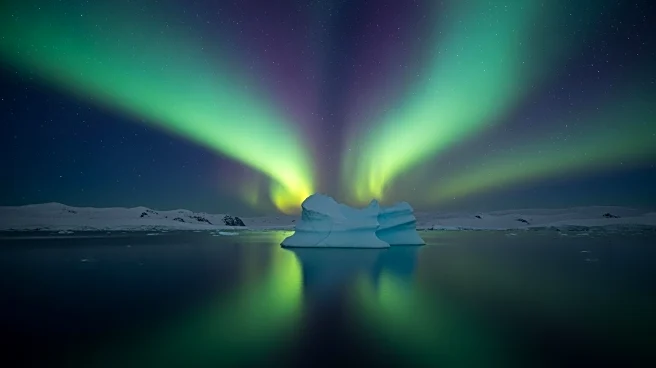What's Happening?
Prime Minister Kristrún Mjöll Frostadóttir of Iceland has announced a strategic shift in the country's Arctic policy, emphasizing increased responsibility without resorting to militarization. Speaking at the Arctic Circle Assembly in Reykjavik, Frostadóttir highlighted
the growing importance of Arctic policy amid global tensions. She stressed the need for Iceland to focus on regional control and cooperation, dismissing the idea of establishing a national military. Instead, Iceland will rely on its strengths in diplomacy and its strategic position in the North Atlantic. Frostadóttir called for stronger ties with Greenland, the Faroe Islands, and North America, and advocated for Iceland to play a role in shaping regional dialogue, including with Russia.
Why It's Important?
This development is significant as it underscores Iceland's commitment to maintaining peace and stability in the Arctic region without contributing to military escalation. By focusing on diplomacy and regional cooperation, Iceland positions itself as a key player in Arctic affairs, potentially influencing international relations and security dynamics in the region. The decision to avoid militarization aligns with Iceland's historical stance and could serve as a model for other nations in managing Arctic interests. This approach may also impact Iceland's relationships with NATO and other international partners, as it seeks to balance security needs with diplomatic engagement.
What's Next?
Iceland's focus on diplomacy and regional cooperation is likely to lead to increased engagement with neighboring countries and international organizations. The government may pursue initiatives to enhance communication and collaboration in the Arctic, potentially involving joint projects or agreements. Stakeholders such as environmental groups, indigenous communities, and international bodies will be watching closely to see how Iceland's policy unfolds and its impact on Arctic governance. The emphasis on non-militarization could also influence future discussions on Arctic security and resource management.















